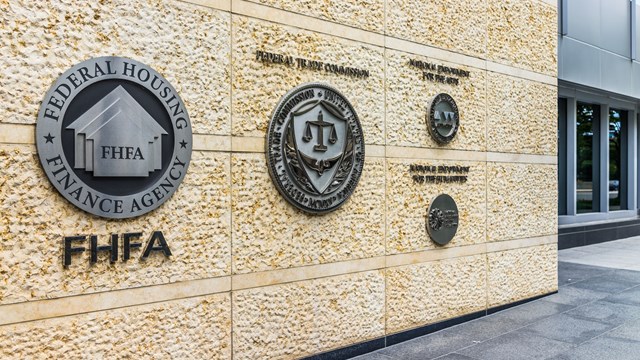When it comes to something as valuable as the place we call home, almost any dispute has the potential to turn into a legal crisis—and that goes double for New Yorkers. For tenants and landlords, these issues usually arise over problems with late rent, rule breaking, or destruction of property. Co-op and condo owners face many of the same issues as rental tenants and their landlords—but they aren’t the same.
As it turns out, shareholders and unit owners have their own forum within the city’s Housing Court to air grievances and seek justice. That place is the Co-op and Condo Part of the Housing Part of the Civil Court of the City of New York—often simply called Part C, for obvious reasons. In 1997, former New York State Chief Judge Judith Kaye announced a top-to-bottom overhaul of the Civil Court’s Housing Part. As part of that reorganization, a special Cooperative/Condominium Resolution Part—Part C—was created to deal specifically with co-op and condo issues.
Thousands of issues and cases have been resolved in Part C in the nearly 10 years since it first opened its metaphorical doors. According to Jeffrey Goldman, a partner with the law firm of Belkin Burden Wenig & Goldman LLP in Manhattan, about 20 percent of the 350,000 cases heard in New York City’s Housing Court involve co-ops and condos.
A Place of Their Own
Lucas Ferrara, an attorney with Manhattan-based law firm Finkelstein Newman LLP, speculates that Part C gets 15 new cases a day from buildings in Manhattan, five days per week. Other boroughs get their share as well. “I’m informed, for example,” says Ferrara, “that the Bronx has quite few cases too—mostly attributable to Co-op City, and predominantly nonpayment cases.”
Before the creation of Part C, disputes between shareholders and co-ops were directed into the same litigation stream as renters and building owners. John Van Der Tuin, a partner in the law firm of Balber Pickard Battistoni Maldonado & Van Der Tuin LLP in Manhattan, has experience with both rental and shareholder cases and believes the separate court was necessary because the dynamics and legal issues are so different. “It’s a different economic relationship,” he says. “With a co-op, it’s not just a space rental—it involves partial ownership. The breadth and depth of the relationship is different.”
But there are similarities as well, according to Stewart Wurtzel, a partner with Manhattan law firm Deutsch Tane Waterman & Wurtzel PC.
“Co-op cases are treated like any other landlord-tenant case in terms of time and handling,” he says. “Shareholders who have violations in their apartment are free to file Housing Part proceedings to correct violations or assert warranty of habitability counterclaims and defenses in the event the co-op has brought a suit for non-payment of maintenance.”
For the most part, Part C housing disputes are the realm of co-ops, says Goldman, adding that individual shareholders or groups of shareholders can represent themselves in Part C proceedings. According to Goldman, only a corporation—such as a residential co-op—is required to have legal representation in Housing Court. Individuals can appear without counsel.
“The court tries to assure that the tenant, if acting [on his own behalf], understands the nature of the proceeding and any documents they may sign,” adds Wurtzel. He cautions shareholders about acting as their own legal eagles, however. “Having an attorney to fully explain the shareholder’s respective rights and obligations is certainly encouraged—it’s not the court’s function to educate shareholders on all their potential defenses and claims.”
The Condo Side
Despite the fact that Part C of the Housing Court will try cases involving condominiums, few such disagreements actually come before a judge—again because of the status of ownership. “In most cases, condos can’t use the housing courts,” says Al Pennisi, a partner in the Queens law firm of Pennisi Daniels & Norelli LLP and president of the Federation of New York Housing Cooperatives and Condominiums (FNYHC). “Each owner has the deed to each of his or her own units. If an association does want to bring legal action against a unit owner, they have to go to the state supreme court, which is our trial court.”
The condominium cases that do make their way to housing court usually involve individuals renting or subletting a condo unit from the principal owner. In those instances, it’s a basic tenant-landlord dispute, which most often would go to the regular housing court, not the co-op/condo part.
Solving Those Disagreements
The vast majority of co-op cases entering the housing court system involve issues such as noise and objectionable tenants. Even something as seemingly mundane as persistent odors emanating from an apartment can create enough trouble within a building to force an issue into court. Perhaps surprisingly, “There are very few issues with things like not paying common charges,” Pennisi says. “People don’t want to lose their homes, so they tend not to fall behind on things like that.”
Which means that the vast majority of issues boil down to a desire by shareholders to take legal action against a fellow shareholder because of some objectionable or unpleasant behavior. If the shareholder does not respond positively to requests from board and management to change or fix the behavior, the board could bring charges against the individual and hold a shareholder vote.
Depending on the individual building’s bylaws, it takes either 51 percent of the shareholders or two-thirds of the board to decide that resident is objectionable and force him or her to leave the building. In most cases, the person voted out does not have much recourse because “By signing the proprietary lease, you have agreed that these people—your fellow shareholders—are your legislature,” Pennisi says. But, he adds, there has to be due process, meaning the shareholder in question must be informed of meetings and votes. No one can be evicted in secret.
Clarifying the differences between co-ops and condos, Pennisi adds, “You can’t do this in a condominium. [The board] would have to go to court and get a court order. You can’t do it by vote of board alone.”
For co-op cases, the lawsuits that make their way to housing court usually involve issues regarding the removal of a shareholder and whether the action was warranted. In many instances, because of the specifics of the co-op’s bylaws, the courts will determine that the judgments of the shareholders will prevail. Often, the real issue is determining that the board did nothing illegal or outside the purview of its bylaws in ousting the shareholder.
Better for Everybody
These issues specific to co-ops are where the expertise of a judge familiar with the intricacies of things like bylaws and the unique relationship between shareholder and co-op board becomes crucial. Although many of the general Housing Court’s 50 judges have training in the particulars of co-op law, not every judge presiding over co-op cases specializes in that particular arena.
Given that, Goldman views the breakout of Part C as a wise move. In a co-op/condo-specific court, “The judge can become familiar with coop/condo issues, and there is hopefully some consistency and an understanding of the issues faced by boards. I don’t think there’s a downside to having a co-op/condo only branch of the court.”
Wurtzel agrees. “Having a separate part of the court for co-op cases has been pretty successful for the most part. Through repetition of issues and problems, the court has become well-versed in the laws governing co-ops and the respective rights of the cooperative and its shareholder lessees. That allows the court to bring its expertise into potential settlement discussions and enables it to explain to both parties the rights and limitations of a board to control its property and to exercise its business judgment.”
The formation of Part C has helped hone the expertise of attorneys as well. Before the creation of the Co-op Part of the Housing Court, there were many lawyers “Who didn’t realize that you can’t treat tenant-shareholders like other tenants,” Pennisi says. “These judges had a lot of expertise in housing laws, but co-ops are different.” Today, Pennisi says, the FNYHC works with a lot of different parties, including attorneys and the judges of the New York City Housing Court, to provide training and information on the unique world of co-ops and shareholders. “The courts have allowed us to do lectures for judges and attorneys,” he says. “There’s been a lot of training going on.” And Pennisi says it’s doing a lot of good.
Pennisi also adds that legislation in support of co-ops has helped bridge the knowledge gap. “Laws have been amended and changed,” he says. Especially in the last ten years, there has been a movement to clarify the distinctions between co-op disputes and general landlord-tenant issues.
Healthier Alternatives
Despite the existence of a separate court to handle co-op cases, the number of disputes that make it to the court is still relatively low in comparison to the enormous number of co-op owners who call New York City home. “There are economic disincentives to going to court,” says Van Der Tuin. “It’s an expensive process.” In fact, if the instigator of the case loses, they are responsible for the cost of all the legal fees, including those of their opponent.
“And it’s still not a good process for resolving disputes,” Van Der Tuin adds. That is especially true considering that many of these cases will end with the shareholder in question still living among the neighbors who brought the complaint against him or her in the first place. The legal process does nothing to assuage grievances, and instead can aggravate them further.
Most of these problems will go to mediation before reaching a point of court judgment. “The vast majority of these cases will be settled before they go to court,” Pennisi says. “If ten to 20 percent of cases get to court, that’s a lot.” Counsel will try to get their clients to sit down and discuss the issue and work with trained mediators to get to the root of the issue and solve the problem. “And even when the case goes to court, it’s usually settled before a judgment is made.” Even the most stubborn individuals tend to see the light when a legal decision looms before them. “It’s the moment of truth,” Pennisi says. “And in the end, people don’t want to get evicted.”
Thanks the formation of the Housing Court’s Part C, thousands of shareholders, unit owners and boards have found a forum in which to settle conflicts where their unique form of home ownership is understood and taken into account. While judges and attorneys are meshing years of experience with an ever-increasing understanding of the proprietary leases, bylaws and other intricacies of co-ops and condos, new legislation is helping to clarify issues and disputes as they grow and evolve in the ever-changing world of real estate and home ownership.
As difficult as legal disagreements can be, shareholders, unit owners and boards can find at least a modicum of relief in knowing that the New York City Housing Court is looking out for their needs.
Liz Lent is a freelance writer and a frequent contributor to The Cooperator.







Leave a Comment